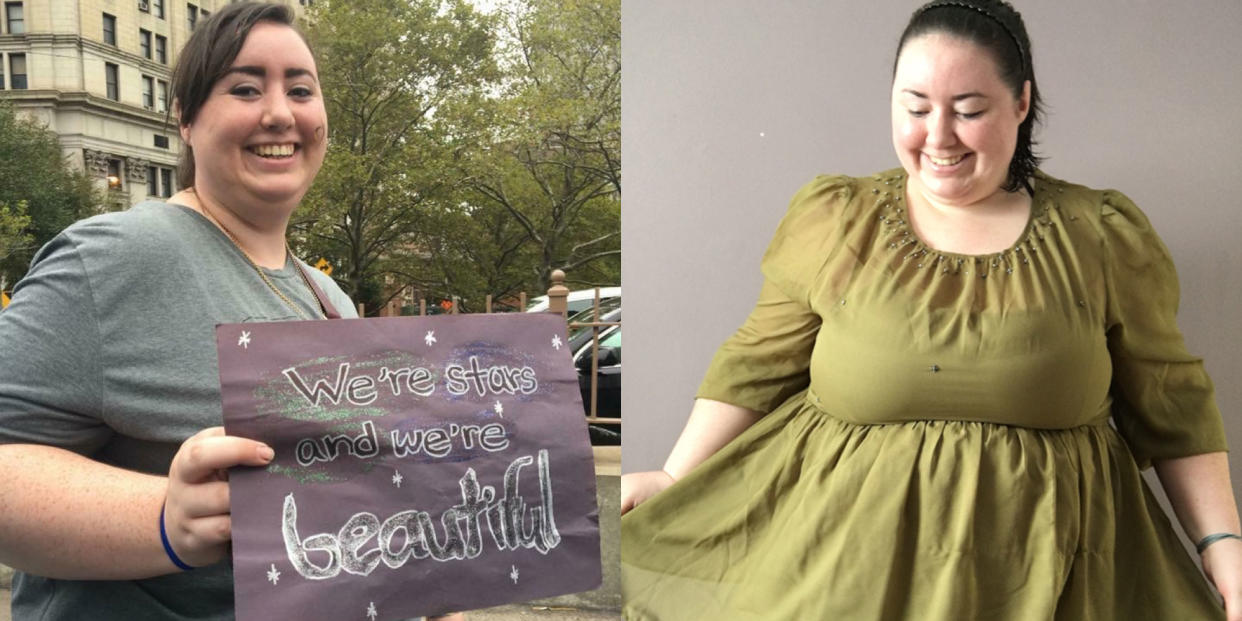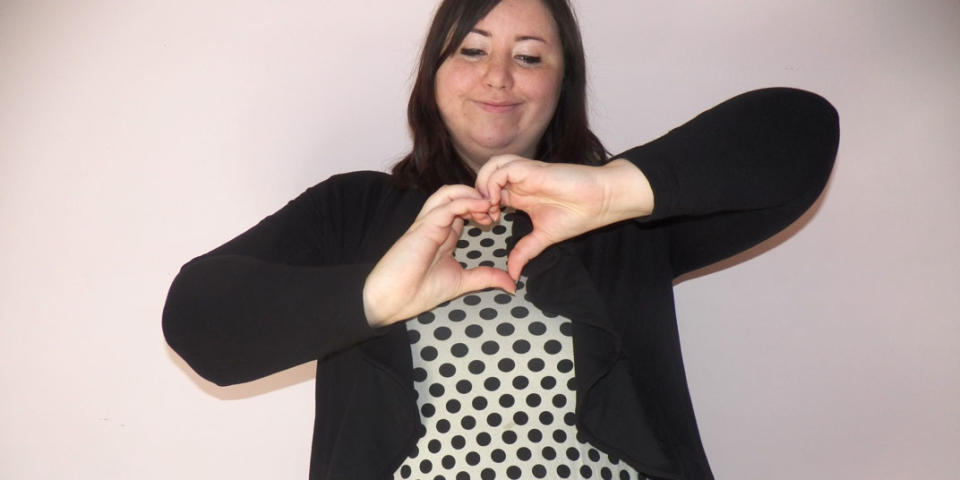Why This Woman Is Boycotting "Before" Photos

Lexie, 21, is recovering from an eating disorder and blogs about mental health. In honor of National Eating Disorder Awareness Week, she's encouraging those battling with and recovering from eating disorders to boycott posting "before" photos, and she's sharing "after" pictures of those boycotting on Instagram. Below, she explains why the practice of posting them can perpetuate problematic stereotypes about recovery.
I deleted my “then” vs. “now” eating disorder recovery photos from social media recently. Why? Because I am so much more than just a comparison photo.
If you don't know what a "before/after photo" is, it's when people in recovery take an old picture from when they were struggling with their eating disorder and put it next to a photo of them now to spread awareness of eating disorders or to show how they've overcome them. Of course, these types of photos are not only posted by those in recovery: people who are sharing weight loss journeys often post them as well. The thing is, though, all these photos represent is physical change.
One misconception surrounding eating disorders, and those suffering from them, stems from the commonly held belief you need to look underweight or look deathly ill to be struggling. And while specific eating disorders can drastically affect one’s weight, you can struggle at any size. You can even face greater struggles at a weight that is perceived as "healthy." You do not need to “look the part" to qualify.
Yes, I have posted photos like these several times in the past - and the reaction I got was always praise. The encouraging comments made me feel validated, and like I was helping others because the feedback on the photos was so supportive. But I also began feeling as if I were posting the photos to prove I was once underweight, even though I struggled tremendously when I was at a healthy weight as well. I also began to realize what a disservice these photos are doing to the recovery community as a whole.
Many people in recovery from an eating disorder preach that you can’t always see those who are struggling, yet they share photos that limit the idea and visual of who is suffering. They do it I believe because they feel obligated to show their illness to those who do not and cannot understand the depths of it. While I believe most people who post before and after photos have only good intentions, by giving in to society's pressure and outsiders’ needs to see progress in visual and external forms, they're reinforcing the idea that we can tell who has an eating disorder by looking at him or her. Not to mention, holding on to before photos is also a way of holding onto the illness. The comparison may be a reminder to some they do not want to go back to being that sick, but it can also invalidate their own struggles and process as it negatively reinforces the misconception that "appearing healthy" must mean "being healthy."
When I shared my own before and after photos, I would describe my "before" as "sick, lifeless, and trapped" and my "after" as "free, happy and better." So I went along with it, despite the reality I was still sick. I felt obligated to make it seem like I'd undergone a complete life transformation because I'd seen so many photos and read countless captions over the years that were structured that way.
I feel the pain in those captions because I can relate to the words. I feel a sense of relief when I read how far people have come in their own recovery - it gives me hope for myself and likely positivity impacts many others still struggling. Though I am currently in recovery from my eating disorder, I continue to struggle with emotional eating. I have not been underweight since 2011 and am no longer experiencing the daily mental distress I used to face, but I am still working hard on my recovery. The process is a journey though, not a destination, so this will always be something I'm working on, so the emotions brought on are evoked solely from the stories they're sharing - not the photos. Stories are universal in a way photos are not.

I only began to regain confidence when I began sharing body-positive-focused posts instead of comparison ones because I was really putting myself out there. I realized it wasn't my followers' opinion of me that mattered: it was my own. At this point in my recovery, I can now recognize I have accomplished so much and can take pride in the fact I have come so far. I want anyone out there in recovery to know this: someone else’s sickest weight or size is not something you have to compete with. Our illnesses are real, no matter what.
So let’s fight back. We are so much more than comparison photos. Share yours with #BoycottTheBefore.
You Might Also Like

